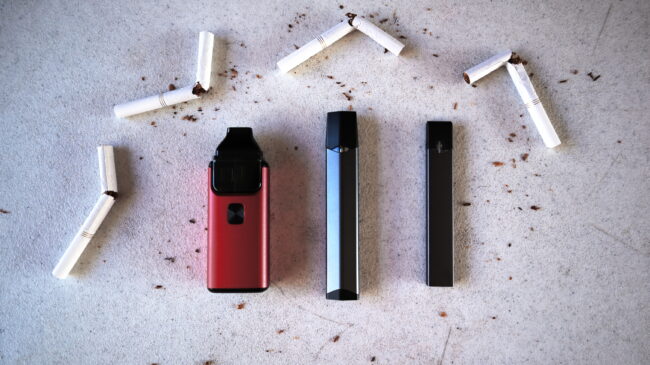The first state in the nation that passed a ban on marijuana, is learning the costs of prohibition all over again. Last June, Massachusetts’ ban on all flavored tobacco products was implemented with full force. As a result, menthol cigarettes, flavored vapes, and smokeless tobacco are no longer available for sale in the Bay State —legally that is.
Business owners, politicians, and economists warned state officials that prohibition would supercharge the illicit tobacco market and do little to reduce tobacco use. But public health groups promised these fears were overblown and that the benefits of the flavored tobacco ban would more than make up for any costs the state might suffer.
Now, however, the New England Convenience Store and Energy Marketers Association (NECSEMA) has crunched the numbers for the first six months of the ban —and it’s not looking good.
From June 2020 to November 2020, Massachusetts cigarette excise tax stamp sales fell 24 percent, with $62 million in revenue lost. When including lost sales taxes, that figure rises to $73 million.
These figures do not include Massachusetts’ losses from other flavored products like cigars, smokeless tobacco, pipe tobacco, or e-cigarettes so they represent an underestimate of the state’s overall revenue losses, with the comprehensive figure possibly breaching $100 million in lost revenue.
Rhode Island and New Hampshire, on the other hand, are enjoying a boom with increased cigarette revenue of $12 million and $28.5 million, respectively. Tax stamps in Rhode Island jumped 18.2 percent and rose 29.7 percent in New Hampshire. Total cigarette sales are up 46 percent in New Hampshire and menthol cigarette sales are up 90 percent. According to the Tax Foundation, Massachusetts now ranks 12th in the nation for cigarette smuggling.
As for non-flavored cigarettes, sales in Massachusetts jumped 15 percent. And non-flavored smokeless tobacco sales have increased by 350 percent compared to the same period in 2019.
“With every month that passes, the state’s ban on flavored tobacco becomes increasingly absurd,” said Jonathan Shaer, executive director of NECSEMA, in a press release. “All anyone needs to do is look at the excise tax stamp numbers from June through November to understand how ineffective and ridiculous this ban is.”
Shaer points out that if you combine the additional sales in neighboring states with the increase in sales of non-flavored cigarettes, total cigarette sales are up in the first six months of Massachusetts’ prohibition.
Skyrocketing cross-border sales were a predictable response to prohibition and it is bewildering why Massachusetts decided to ban these products in the first place.
In 2019, the latest year for which we have complete data, five percent of Massachusetts youth said they had smoked in the past 30 days. The number who smoked frequently, defined as 20 or more days in the last month, was 0.6 percent. For adults, the smoking rate was 12 percent.
The smoking rate for both youth and adults in Massachusetts is below the national average. In fact, an analysis conducted by Reason Foundation found that states with a higher distribution of menthol cigarettes tend to have lower smoking rates.
Since the already-declining smoking rates couldn’t be the primary reason for the Massachusetts flavor ban, one of the key arguments made for prohibition was that blacks are far more likely to smoke menthol cigarettes. Supporters of the flavored tobacco ban claimed it would improve black residents’ health and narrow health disparities. It’s true that black smokers overwhelmingly favor menthol. But looking at the overall smoking rates, there’s little difference between the proportion of blacks and whites who smoke— 14.4 percent and 12.3 percent, respectively. As for narrowing health disparities, unfortunately, no health improvements will be had when folks can stock up on cheap menthol cigarettes from out of state or switch to an equally deadly non-menthol cigarette.
Lost revenue isn’t the only cost of the flavor bans. Because of the racial disparities in menthol use, the illicit market is likely to be concentrated in black communities. Enforcing the flavored tobacco ban will almost certainly be disproportionately focused on black residents, which is a principal reason why the American Civil Liberties Union and other civil rights organizations opposed a federal menthol ban in February 2020.
Across the country, as legislators begin their work for 2021, tax revenues shouldn’t be the only thing to give them pause when considering flavored tobacco bans but they should also consider fundamental questions of fairness, effectiveness, and whether prohibition will actually achieve the purpose for which it is intended.
Correction: Rhode Island initially saw its cigarette-related tax revenues increase by $12 million, not $14 million as was reported in the original version of this article.

